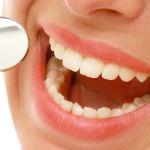How to Ensure Proper Nutrition for Seniors to Maintain Oral Health
When my mother turned 75, her dentist warned us that poor nutrition could directly affect her oral health. At first, I thought, “She eats enough, doesn’t she?” But I quickly learned that it wasn’t just about how much she ate — it was about *what* she ate. That moment shifted how we approached her meals. Oral health in seniors isn't just about brushing and flossing — it's deeply tied to diet. In this article, I’ll walk you through everything I’ve learned about supporting proper nutrition for seniors to maintain healthy teeth and gums.
1. Understanding Why Nutrition Impacts Senior Oral Health
As we age, our bodies change, and so do our nutritional needs. Seniors often face challenges like reduced appetite, difficulty chewing, or medication side effects that affect their ability to maintain a balanced diet. For my mom, dry mouth caused by her blood pressure meds made it uncomfortable to chew, leading her to avoid many fresh fruits and vegetables. That lack of crunch led to lower fiber intake and weaker gums.
1.1. The Role of Key Nutrients
Calcium and vitamin D are critical for maintaining strong teeth and bones. I made sure Mom had plenty of leafy greens, low-fat dairy, and fortified plant-based milks in her diet. Vitamin C is another big player — it helps keep gums healthy. We added oranges, bell peppers, and strawberries to her breakfast to keep her gums in check. Protein is equally essential, not just for muscles, but also for repairing tissues in the mouth. Eggs, tofu, chicken, and legumes became staples in our weekly meal plans.
1.2. How Deficiencies Show Up in the Mouth
Before we changed her diet, Mom started showing signs of gum sensitivity and even had two teeth loosen over a few months. Her dentist explained that these were common signs of nutritional deficiency, especially in calcium and vitamin C. Once we adjusted her meals, we noticed a reduction in gum bleeding and her mouth just felt better overall — she told me so herself.
2. Creating a Senior-Friendly Meal Plan for Better Dental Health
It wasn’t easy at first, especially because she wasn’t interested in eating much. But we got creative. I started preparing smaller, more frequent meals that were soft enough to chew but still packed with nutrients. Think mashed sweet potatoes, salmon with avocado, or yogurt with blended fruit.
2.1. Easy-to-Chew Foods That Pack a Nutritional Punch
One of our go-tos became oatmeal with ground flaxseed and sliced bananas. It was warm, comforting, and easy to chew. For lunch, I’d make soups with lentils, carrots, and spinach — nutrient-dense and soothing. We also discovered smoothies were an amazing way to sneak in leafy greens and protein. I’d throw in Greek yogurt, berries, almond butter, and a handful of kale. She loved them.
2.2. Planning Meals Around Oral Sensitivity
We realized she avoided foods not because she didn’t like them, but because they caused discomfort. Crunchy apples, crusty bread, and even citrus fruits became irritating. So we swapped in baked apples with cinnamon, soft multigrain bread, and used citrus zest instead of raw lemon. By adapting the textures and acidity of her food, we helped her enjoy eating again — without compromising nutrition.
3. Hydration and Its Role in Oral Health
Dry mouth is common in older adults and often caused by medication. For my mom, this made it hard to talk and eat. We started adding cucumber and mint to her water to make it more enjoyable and encouraged her to sip throughout the day. Herbal teas and soups also contributed to her fluid intake.
3.1. Avoiding Dehydrating Foods and Drinks
Coffee and alcohol — both of which she loved — were big culprits in her dry mouth. We cut back on both and replaced them with chamomile and rooibos tea. Not only did she feel more hydrated, but her mouth ulcers, which used to pop up frequently, started to disappear.
4. Supplements and When They’re Necessary
Despite our best efforts, we found that some nutrients were hard to get through diet alone — especially vitamin D during winter months. Her doctor recommended a supplement, and within a few weeks, we noticed she had more energy and fewer complaints about gum irritation. We also added a B12 supplement because low levels can cause oral soreness and fatigue — something we hadn’t connected at first.
4.1. Working With a Dentist and Dietitian
We booked a joint session with her dentist and a registered dietitian. It helped us create a personalized meal plan that supported both her overall health and her oral health. Having professional guidance took a lot of the guesswork out of planning meals and choosing supplements. Plus, it gave her the motivation to take her diet seriously.
5. Making Oral Health a Family Priority
This journey wasn’t just a wake-up call for my mom — it made me rethink my own diet and how nutrition plays a role in oral health at every age. We started cooking meals together more often, sharing recipes, and even going to the farmer’s market every Saturday. Her dentist was amazed at her progress during her next checkup — no more bleeding gums, no new cavities, and a brighter smile overall.
Helping a loved one maintain oral health through proper nutrition isn’t just possible — it’s rewarding. With the right foods, hydration, and support from professionals, seniors can enjoy healthier mouths and better lives.







 Family Holland Dental4.0 (236 review)
Family Holland Dental4.0 (236 review) Round Lake Dental4.0 (115 review)
Round Lake Dental4.0 (115 review) Eastern Dental3.0 (336 review)
Eastern Dental3.0 (336 review) Millennium Dental Arts5.0 (235 review)
Millennium Dental Arts5.0 (235 review) A-Z Dental Art Studio4.0 (50 review)
A-Z Dental Art Studio4.0 (50 review) Bespoke Dental Co.4.0 (32 review)
Bespoke Dental Co.4.0 (32 review) The Importance of Oral Health Education During Pregnancy for a Healthy Pregnancy
The Importance of Oral Health Education During Pregnancy for a Healthy Pregnancy Best Tips for Brushing Your Teeth Properly for Healthy Gums: Essential Techniques for Oral Health
Best Tips for Brushing Your Teeth Properly for Healthy Gums: Essential Techniques for Oral Health Why Skipping Dental Checkups Can Lead to Bigger Oral Health Problems
Why Skipping Dental Checkups Can Lead to Bigger Oral Health Problems Advantages of Porcelain Dental Restorations
Advantages of Porcelain Dental Restorations How Can Diabetes Cause Tooth and Gum Problems? Preventing and Managing Oral Health Issues
How Can Diabetes Cause Tooth and Gum Problems? Preventing and Managing Oral Health Issues Healthy Habits for Promoting Good Oral Health and Hygiene: Tips for a Healthy Smile
Healthy Habits for Promoting Good Oral Health and Hygiene: Tips for a Healthy Smile